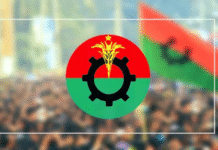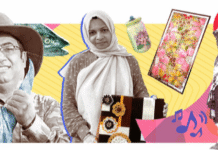Maswood Alam Khan from Maryland, USA
Whether it is in business or government or in life, nothing matters more than leadership. A leader sees the vision, charts the path, navigates the enterprise and inspires others to follow. Leadership quality in a person is hard to describe. You know it when you see the leader and feel it when the leader asks you to follow.
In Bangladesh, we are surrounded by leaders, who sadly rely on style and oratory or on the past fables or invented glories; they are leaders but they do not display their leadership with character, substance and integrity. That is the real tragedy, a tragedy of leadership crisis. In spite of such leadership crises, Bangladesh has been endowed and blessed with a few leaders with sterling qualities at least in the arena of business and public welfare, if not in the domain of public governance. Sir Fazle Hasan Abed, founder of BRAC, is such an exemplary leader of distinction under whose captaincy BRAC has turned out to be a grand success story.
“Be not afraid of greatness”, said William Shakespeare in ‘Twelfth Night’. But, in Bangladesh where Sir Fazle Hasan Abed, the founder of BRAC, was born, you have ample reasons to feel scared of being famous or great. You have to pay a heavy premium if you by chance become a great man or a woman-the way Professor Yunus, the founder of Grameen Bank, has now been paying through his nose after he was awarded Nobel Peace Prize.
Thank God, Sir Abed is still safe today from the volleys of attacks from some vested quarters. He has not yet drawn much ire from the so-called elite of our society who believe fame and prestige are their dynastic rights and privileges. God knows what would happen if Fazle Hasan Abed becomes the second Bangladeshi to get a Nobel Prize! Sir Abed, however, should draw inspiration from Shakespeare’s advice on ‘braving the fires of attacks’ in case he gets a Nobel once he becomes greater or maybe a Nobel laureate, should feel solaced by what Albert Einstein once said: “Great spirits have always encountered violent opposition from mediocre minds.”
With his piece of advice on not to feel afraid of greatness in “Twelfth Night” William Shakespeare added also a philosophical adjunct: “Some are born great, some achieve greatness, and others have greatness thrust upon them.” In Bangladesh, many of us are born great who, like sons and daughters of kings and queens, hardly lead a life of virtues but have somehow become great by virtue of their parents or spouses or of their powerful friends. Greatness has also been thrust upon many of us by virtue of, say, rigged elections in which case election engineers and vote manipulators are the thrusters. There are, however, very few people in Bangladesh who have achieved greatness by their sacrifices, dedication, untiring efforts, commitments and missionary zeal. Luminaries like Professor Yunus and Sir Abed fall into this category of excellent achievers.
Let us extend our warmest congratulations to Sir Fazle Hasan Abed for what he, in harmony with the BRAC family, has done for the welfare of the hapless people of Bangladesh and of many other developing countries in the world. BRAC, Sir Abed’s brainchild that was born back in 1972, is now a global brand, a name that now reverberates around the world as a beacon of hope for the hapless.
Fazle Hasan Abed got knighthood from the Queen of England and his BRAC has of late been ranked by The Global Journal, a prestigious publication based in Switzerland, as the top NGO among the 100 best NGOs in the world in 2013. BRAC has thus surpassed many other famous international NGOs such as Oxfam, Care International and Save the Children International. BRAC is an entity that now reaches an estimated 126 million poor people all over the world directly through its programmes, that provides health care to about 100 million people, that employs a growing staff of 102,000 and that has already lent $9.73 billion in micro-loans to over five million borrowers. BRAC is a global movement bringing profound change to people in 11 countries in Asia, Africa and the Caribbean.
BRAC, Grameen Bank, ASA and other successful NGOs in Bangladesh have proven that an NGO is no lesser a body than a government to ensure welfare of a nation; rather their contributions at times far outweigh those of a government. A few years back, a study led by the Johns Hopkins University, revealed that the global non-profit sector was estimated to be worth $1.3 trillion—equivalent to the total GDP of the United Kingdom (or the combined GDP of 50 low-income countries).
In a country where rampant corruption constantly clouds our ability to discern what is good or bad, where nasty partisan politics has already divided the nation with a set of people marked as ruthless rulers and the rest as abject subjects, where governance means a way of running the country by mean servility, BRAC, a philanthropic institution founded and nurtured in the same land of Bangladesh, has shown how corporate commitment and professionalism can turn an NGO into a global player of distinction in alleviating poverty and upholding human rights.
Wangari Muta Maathai, the first African woman to receive the Nobel Peace Prize for her contribution to sustainable development, democracy and peace, aptly said: “BRAC tackles the causes of poverty, hunger and hopelessness at the root, and plants trees of hope.”
Source: Financial Express









